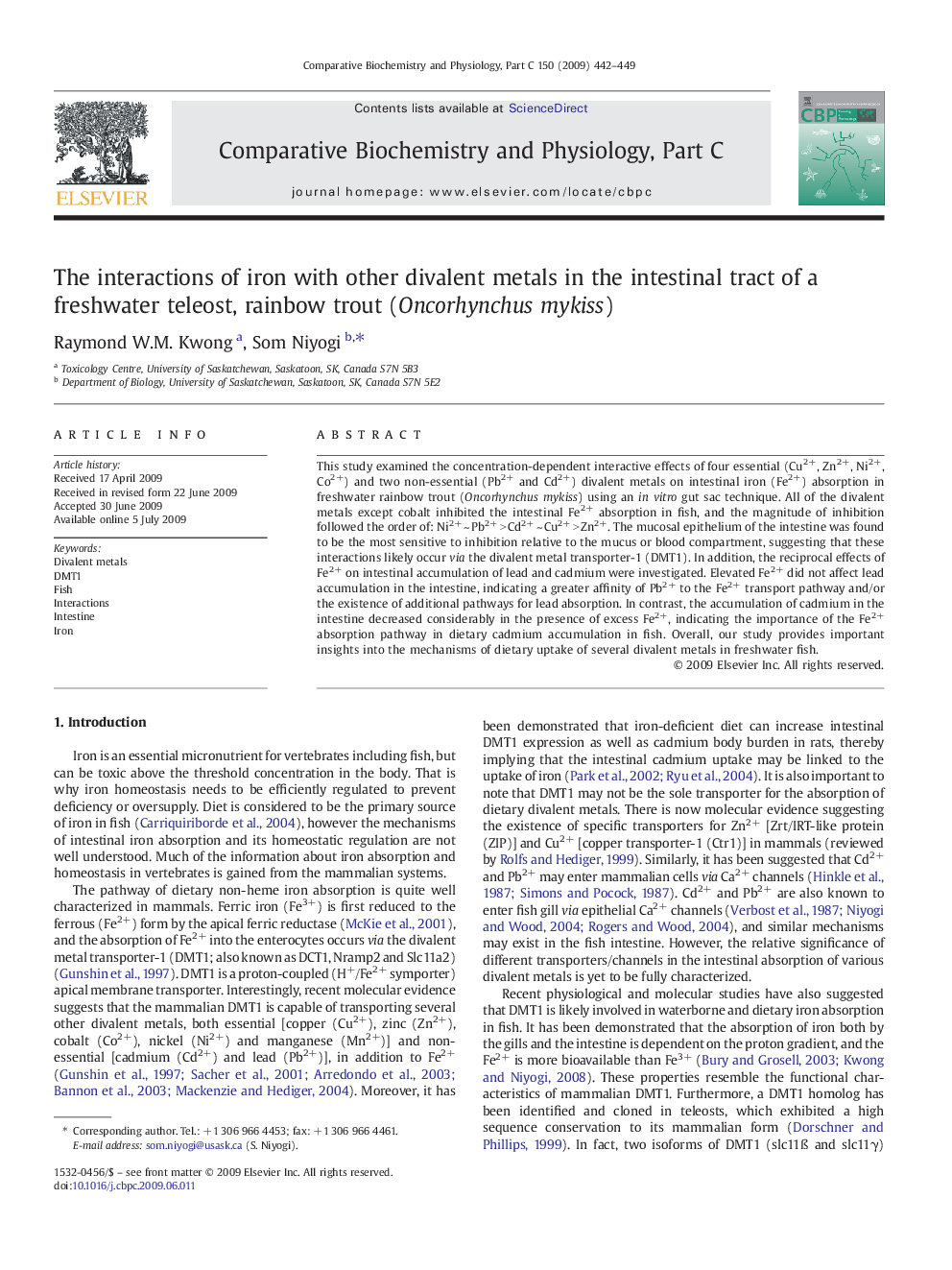| Article ID | Journal | Published Year | Pages | File Type |
|---|---|---|---|---|
| 1977715 | Comparative Biochemistry and Physiology Part C: Toxicology & Pharmacology | 2009 | 8 Pages |
This study examined the concentration-dependent interactive effects of four essential (Cu2+, Zn2+, Ni2+, Co2+) and two non-essential (Pb2+ and Cd2+) divalent metals on intestinal iron (Fe2+) absorption in freshwater rainbow trout (Oncorhynchusmykiss) using an invitro gut sac technique. All of the divalent metals except cobalt inhibited the intestinal Fe2+ absorption in fish, and the magnitude of inhibition followed the order of: Ni2+ ~ Pb2+ > Cd2+ ~ Cu2+ > Zn2+. The mucosal epithelium of the intestine was found to be the most sensitive to inhibition relative to the mucus or blood compartment, suggesting that these interactions likely occur via the divalent metal transporter-1 (DMT1). In addition, the reciprocal effects of Fe2+ on intestinal accumulation of lead and cadmium were investigated. Elevated Fe2+ did not affect lead accumulation in the intestine, indicating a greater affinity of Pb2+ to the Fe2+ transport pathway and/or the existence of additional pathways for lead absorption. In contrast, the accumulation of cadmium in the intestine decreased considerably in the presence of excess Fe2+, indicating the importance of the Fe2+ absorption pathway in dietary cadmium accumulation in fish. Overall, our study provides important insights into the mechanisms of dietary uptake of several divalent metals in freshwater fish.
